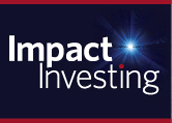"They didn't really have a good handle on the timely basis of their financial performance," Aidun says. "We realized they were rapidly approaching a liquidity crisis, and they were about to breach many of their lender agreements."
Singer disagrees, claiming that E+Co's main creditors knew that small and medium enterprises often delayed payment. "There was an understanding that a traditional 30-60-90-120 day accounts receivable report was not a realistic assessment of the portfolio," she says. "Staff analysis had shown that more than ¾ of those that had consistently paid late eventually paid off."
"This had been deemed 'mission acceptable,'" she points out.
According to E+Co's 2010 tax return, the IFC granted it a five-year extension on the principal on its loans, until 2018. With $18 million in loans outstanding, the IFC was E+Co's largest creditor.
After conferring with the Board about how to save E+Co, Aidun says, the fund approached senior lenders and asked for a ten-year moratorium on the nonprofit's interest and principal payments. Thus began negotiations that almost ended in the fund's liquidation, but where all its remaining investments will now be managed out.
"The takeaway for E+Co is that if you don't focus on the financials, the mission is never realized," Usher says. "Mission's important, financials are important. But one comes first, frankly."
Persistent is pushing forward with lightning speed. "We have just made two investments," Aidun writes in an email from Africa. "If you understand them [Off-Grid Electric and Devergy,] it will help you to understand what we are looking for."
A former investment banker, Ellie Winninghoff is a writer and consultant specializing in impact investing. Her writing about impact investing is linked at her blog, www.DoGoodCapitalist.com, and she can be reached at: ellie.winninghoff (at) gmail (dot) com.

